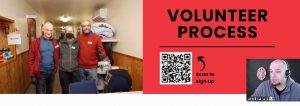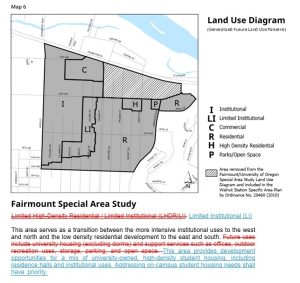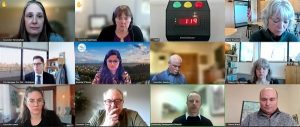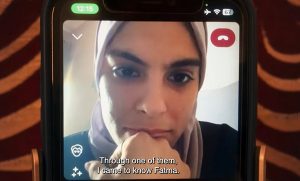EEFF filmmaker features Indigenous language revitalization
6 min read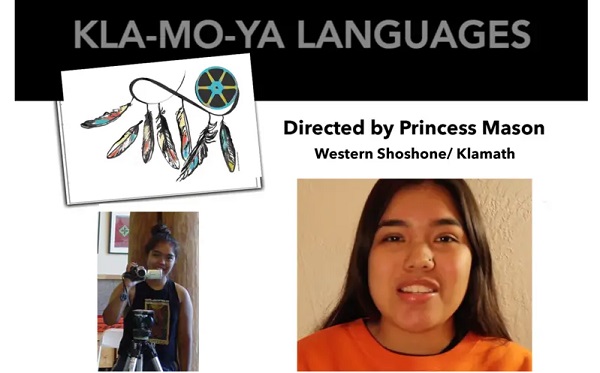
DJ Suss D: The Eugene Environmental Film Festival believes in creating space and a platform to address and bring light to critical issues facing our planet. They support the work being done at local and global levels and share a deep connection and responsibility to protect the environment and work in solidarity with others in the struggle for environmental justice.
[00:00:21] They do this through creating a 10-day event with meaningful and inspiring films, discussion, speakers, workshops, and special events in downtown Eugene and surrounding areas. They screen all films in person and offer online viewing with closed captions for accessibility. They also strive to provide opportunities to connect participants with outlets to take action on environmental and social justice issues.
[00:00:47] In addition, they carve out space for young filmmakers 18 years old and younger. The purpose is to highlight youth involvement and concern for and protection of the environment. Eugene is the birthplace of Our Children’s Trust, which is an organization to empower the voice of youth to protect the environment.
[00:01:06] If your film is chosen for the film festival, they aim to provide complimentary lodging at a homestay, film festival passes, and access to special events. In addition, filmmakers have an opportunity to discuss their film at screenings and special events. This is a great opportunity for filmmakers to promote their work, inspire change, and network with others.
[00:01:28] I spoke with Princess Bass-Mason. She recently graduated from the University of Oregon with a B.A. in political science. She’s passionate about language revitalization and evolution and hopes to contribute to Tribal language programs and Indigenous sovereignty.
[00:01:44] She’s an intermediate beginner Western Shoshoni / Newe Taikwa speaker and plans to begin Klamath and Modoc language lessons in the fall of 2024. She plans to go into the field of law. She produced the film Kla-Mo-Ya Languages.
[00:02:01] Can you give me an example of how learning language taught you about culture? And land stewardship, how it links to land stewardship.
[00:02:10] Princess Bass-Mason: One example of how the language connects to culture is that in the newe taikwappe, in Western Shoshoni, there’s not really gendered language. There’s more of a, when you’re referring to a person that may be female or male you just say ‘that one’ or ‘that one over there’ so it kind of changes the way you think about people a little bit.
[00:02:31] And also the just the way of going about certain things kind of shifts a little bit in my mind when I’m speaking newe taikwappe, I’m not really, I’m kind of taking myself away from the context of English or like the Westernized world, I guess. You have to kind of be in a different frame of thought. Like it’s kind of like a shift sideways. I don’t really know how to explain that. I wish I had more immediate examples but…
[00:03:02] And then how language and land stewardship is connected is that at least for when I was learning Western Shoshoni there was just different different, I just feel, you feel more rooted in different natural objects. Like, there’s different words for trees and then the species of the trees, the different words and like phrases that regards the seasons. It just makes you a lot more involved and like rooted in that place of being, I guess.
[00:03:34] Like all of it’s interconnected, like maybe the root word for a tree is—But the word for leaf is like (Shoshoni word for leaf) and so sometimes a small word like that is connected to the word tree; stuff like that. So like you said, it’s kind of like interconnected; there’s like offshoots. And it’s really cool because it also connects you not just to the land, but also to the different people that reside on those portions of land.
[00:04:01] So like you might use a certain phrase or word, but then your neighboring Tribe will use a different like a slightly different phrasing and then you can kind of like communicate and like be like, ‘Oh, why do you, like, why do you call it that,’ and I don’t know, it’s just really interesting.
[00:04:18] So it makes you more involved with that place that you are at and then also with other people around that because it always starts a conversation on like, ‘Oh why does your tribe call it that, this is why our tribe calls it that.’
[00:04:30] DJ Suss D: You started to say that it puts you in a different—it shows you the difference between Western culture and Indigenous culture and what about time? Things take more—you’d slow things down.
[00:04:43] Princess Bass-Mason: Yeah, so an example of that is just when you’re actually speaking Western Shoshoni. So right now, if I’m nervous or something, I’ll talk a little bit faster, or that’s just the natural way I speak.
[00:04:53] But for Western Shoshoni, you want to elongate your vowels and your vowels and just take time. Because a lot of time there’s like repeating ‘O’s for example or, like, let me see: (offers Shoshoni examples), so like you can’t just like go through that word really fast—(rapidly pronounced Shoshoni word)—like, no one’s going to know what you’re speaking of. Well, we’ll know, because everyone’s kind of learning it. But the traditional way of doing it is to take the proper amount of time to get that word out.
[00:05:23] So I, like, that’s kind of an example of, you know, of the different time. In English you could pretty much understand people saying things kind of faster and squished together. But when you’re doing it with Western Shoshoni, especially when you’re first beginning, you want to take it all the way down to the ground level, the fundamentals, and keep building from there and make sure that you’re timing things slowly. You’re not in a rush to say anything.
[00:05:47] In Western Shoshoni, for example, you don’t have a higher tone when you’re asking a question. You might even lower your tone of voice when you’re asking, like (Yeah, in the inflection) so it’s like it’s just different ways of like pronouncing and asking things. Like another thing is, in Western Shoshoni you don’t really need to do the inflection, because you have a particle that indicates that you’re asking a question.
[00:06:15] DJ Suss D: Why is this so important that we learn these languages? What will happen if we lose these languages in this culture?
[00:06:24] Princess Bass-Mason: I mean that’d be a sad day. I don’t believe we’re ever going to lose languages because people are continuously doing the hard work of doing research in the universities, looking at all of those stuff that was heading away from Native American people and other Indigenous peoples, but there’s also language keepers and knowledge keepers around.
[00:06:44] So I mean, I don’t even want to consider like, ‘Oh, it’s never going to exist,’ but sometimes that is the reality for some Native American people or other Indigenous people currently. So, I mean, it really profoundly affects those people that have that part of their identity taken away from them internally or externally.
[00:07:03] DJ Suss D: But I mean, Western culture has something to learn from that, would lose something too.
[00:07:09] Princess Bass-Mason: Yeah, I know. I mean, it’s really sad when everything is homogenized. It definitely takes away from all the lives we’re leading, whether or not we’re invested in those cultures.
[00:07:21] DJ Suss D: For more information on the Eugene Environmental Film Festival, go to EugeneEnvironmentalFilmFestival.org. For KEPW News, I’m DJ Suss D.

